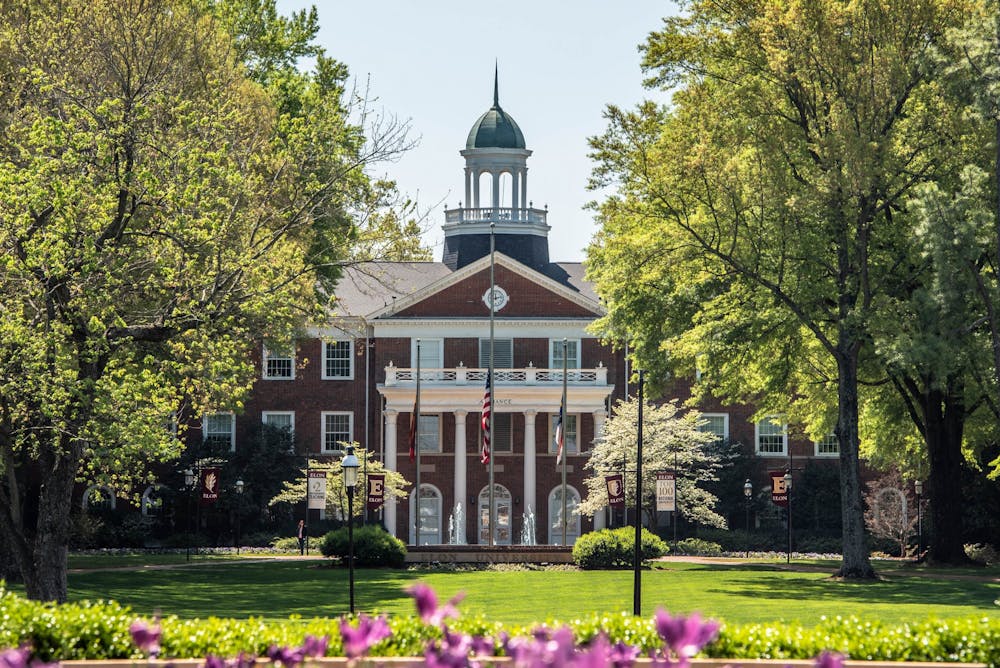Molly Zlock, Elon University director of HR compliance, equal opportunity and Title IX, said that the proposed changes to Title IX will likely provide increased protections — specifically for people in LGBTQIA+ communities and people who are pregnant.
Title IX serves to protect against gender discrimination in any program that receives federal funding, including schools. It was established in 1972, and a person’s right to have an abortion was established in 1973 in the ruling of the Supreme Court case Roe v. Wade. Zlock said she felt the proposed changes to Title IX came over the summer to offset Roe v. Wade being overturned in June.
“This proposed rule was released the day before the Roe v. Wade decision,” Zlock said. “With those increased protections for pregnant or parenting students, it's obvious that they were anticipating the ruling. ... Wanting to put those protections in place was something that's obviously very important to this administration.”
Zlock said Title IX was changed in a large way under former President Donald Trump in 2020 in which regulations became legal binding — as opposed to Title IX regulations acting more like guides pre-Trump Administration.
“So the Trump administration took a different route and said, ‘Well, we're going to codify some of this stuff that we want changed in Title IX,’” Zlock said. “And so they put forward these 2020 regulations, which, amongst other things, require live hearings in certain cases. The 2020 regulations changed the behavior that falls under Title IX, narrowing the definition.”
Joe LeMire, chief of campus safety and police, said knowing what Title IX entails is crucial as campus security are generally the first people to respond to an event such as sexual assault. LeMire said while campus safety is separate from the Title IX office, they work together to make sure students know what resources are available to them.
“You have to offer resources, you have to offer accommodation,” LeMire said. “If somebody was sexually assaulted, we have to make sure that maybe if they lived in the same residence hall, they're separated. And some of this stuff is possible because sexual assault may come in in the middle of the night, where some of the administrative resources on campus obviously aren't working, so our part is making sure that we understand that process.”
Zlock said while the proposed changes have not been released yet, these changes are to expand some of the protections that were taken away in 2020. After Title IX protections were narrowed following 2020, Zlock said it was a process to change how Title IX would function at Elon. Now, Elon has both a Title IX policy and sexual misconduct policy, which helps to cover the aspects of Title IX that were removed.
“Revamping all of our policies in response to the 2020 regulations was not an easy feat,” Zlock said. “It took a lot of resources, university resources, having that all changing and then future administration to possibly change it back again, we want to create something that's going to be stable through any kind of political change.”
LeMire said campus safety has been understaffed until Aug. 30, and he is now working to finalize the sensitive crimes team. He said this team will consist of six people and campus safety will be working to see what training their staff is missing and figuring out the best way to train the new team.
“Some of the areas that they'll receive special training will be interview interrogation, trauma informed interviewing skills, evidence processing cases involving strangulation, suffocation, LGBTQ allyship training, and other sexual assault, response type stuff that those will be our go to people,” LeMire said. “When we have such a case that we'll be able to call people in or use the people on shift that have developed the right skills to investigate such cases so we can support people the best that we can.”
Zlock also said apart from minor tweaks, Title IX has not seen major changes at Elon, and she expects the proposed changes will take effect next school year.
“The Title IX office is here to respond to the impact of sexual misconduct within our community,” Zlock said. “So anybody who's been impacted, we have supportive measures and resources that we would love to offer them to help them process that impact. … I would suggest anybody who's been impacted by sexual misconduct, to contact safeline and to talk over their options with safeline as well.”


